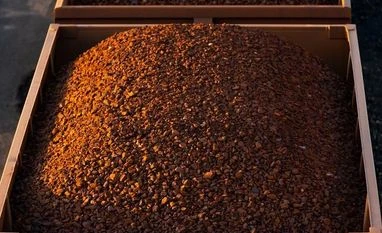Steel sector may face disruption in iron ore supplies with 232 mines expiry
Non-integrated steel companies, which do not have access to captive iron ore mines, will be relatively more vulnerable in the event of such delay
)
Photo: Bloomberg
With the leases of 232 merchant iron ore mines expiring in March next year, the country may face a short-term disruption in supply of the main ingredient used in making steel, Acuite Ratings & Research Ltd said today.
"The expiring leases can potentially curtail about 25-30 per cent of the country's iron ore production, taking into account the expiring leases of other states as well," Acuite Ratings & Research Ltd said in its latest report.
Iron ore is the main ingredient used in making steel.
Consequently, any significant delay with respect to auctions and more specifically lease transfers will affect iron ore supply and prices, thereby putting further pressure on sector profitability.
Non-integrated steel companies, which do not have access to captive iron ore mines, will be relatively more vulnerable in the event of such delay.
Also Read
Therefore, a smooth transition in the lease transfers through the upcoming auction process along with the expected increase in pellet availability will be critical to offset the near term profitability challenges in the steel sector.
"Indian government has initiated the process to auction 329 mines including 232 iron ore mines where the leases are set to expire in March 2020. This is a part of its initiative to address the issue of lower mine productivity, lack of adequate investment for mine development along with the need to bring in higher transparency in mine allotment," it said.
"It is pertinent to note that 208 such mines are currently non-operative and transfer of the leases can lead to fresh investment and development, thereby enhancing domestic iron ore production significantly beyond the current levels of 220 million tonnes," it said.
Expediting the auctions and the subsequent approval processes for mining operations to be undertaken by new lessees will be critical to avoid any longer term supply shortages in the steel sector, it said.
"Any tightening of ore prices in the currently moderate demand environment clearly may put further pressure on the margins of secondary steel players, which continue to have an overhang of debt," the report said.
More From This Section
Don't miss the most important news and views of the day. Get them on our Telegram channel
First Published: Nov 26 2019 | 7:15 PM IST
